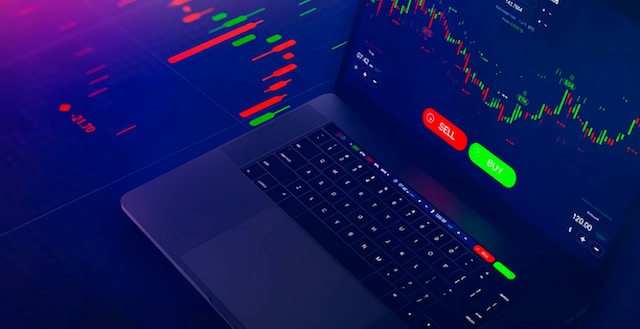
Introduction
Artificial Intelligence (AI) has revolutionized various industries, and trading is no exception. With its ability to analyze vast amounts of data, identify patterns, and make rapid decisions, AI has become a powerful tool for traders. In this article, we will explore the reasons why embracing AI in trading can lead to enhanced performance, increased efficiency, and improved decision-making.
Advanced Data Analysis
One of the significant advantages of AI in trading is its ability to analyze large volumes of data with incredible speed and accuracy. AI algorithms can process vast amounts of financial data, including historical prices, market news, social media sentiment, and economic indicators. By leveraging AI’s data analysis capabilities, traders can identify hidden patterns, correlations, and market trends that may not be readily apparent to human traders. This enables them to make more informed investment decisions and gain a competitive edge in the market. An AI trading platform can help you with this.
Improved Market Prediction
AI-powered trading systems can utilize complex machine learning algorithms to predict market movements with a higher degree of accuracy. By analyzing historical data and continuously learning from new market information, AI models can identify patterns and signals that human traders may overlook. These predictive capabilities help traders identify potential buying and selling opportunities, optimize entry and exit points, and mitigate risks. The ability to make more accurate predictions can significantly improve trading performance and generate higher returns.
Automation and Efficiency
AI-driven trading systems can automate various aspects of the trading process, reducing manual effort and increasing efficiency. These systems can execute trades, monitor markets, and manage portfolios in real-time, eliminating the need for constant human intervention. Automation allows traders to react quickly to market changes, take advantage of fleeting opportunities, and execute trades at optimal prices. By freeing up time from repetitive tasks, traders can focus on higher-level strategic decision-making and portfolio management.
Risk Management and Compliance
Effective risk management is crucial in trading, and AI can play a vital role in this aspect. AI algorithms can monitor market conditions, assess portfolio risk, and provide real-time alerts for potential risks or anomalies. By analyzing historical data and identifying patterns associated with market downturns or specific risk factors, AI can help traders take proactive measures to mitigate risks and protect their investments. Additionally, AI-powered compliance systems can ensure adherence to regulatory requirements and detect any suspicious trading activities, contributing to a more secure and compliant trading environment.
Emotional Bias Mitigation
Emotions can often cloud judgment and lead to poor decision-making in trading. AI trading systems operate based on predefined rules, algorithms, and data analysis, devoid of human emotions. By eliminating emotional biases, AI can make rational and data-driven decisions, leading to more consistent and disciplined trading strategies. This helps traders avoid impulsive decisions influenced by fear or greed, leading to more objective and potentially profitable outcomes.
Access to Alternative Data Sources
AI technology has enabled traders to tap into alternative data sources that were previously unavailable or difficult to analyze. These sources include satellite imagery, social media sentiment, web scraping, and sensor data. By incorporating these unconventional data points into their analysis, traders can gain unique insights and a deeper understanding of market dynamics. This allows for a more comprehensive assessment of investment opportunities and a broader perspective on market trends.
Adaptability to Changing Market Conditions
The financial markets are dynamic and constantly evolving. AI-powered trading systems can adapt quickly to changing market conditions and adjust trading strategies accordingly. These systems can analyze real-time market data, monitor news events, and identify patterns to optimize trading decisions in response to market fluctuations. The adaptability of AI allows traders to stay agile and capitalize on emerging opportunities or mitigate risks as market conditions evolve.
Conclusion
The integration of AI in trading offers numerous benefits for traders, ranging from advanced data analysis and improved market prediction to automation, risk management, and adaptability. By embracing AI, traders can gain a competitive edge, enhance performance, and make more informed investment decisions. However, it’s essential to remember that while AI can provide powerful insights and automation, human judgment and oversight remain crucial in navigating the complexities of the financial markets. Combining the strengths of AI technology with human expertise can unlock the full potential of AI in trading, leading to greater success and profitability in today’s fast-paced and data-driven trading environment.










